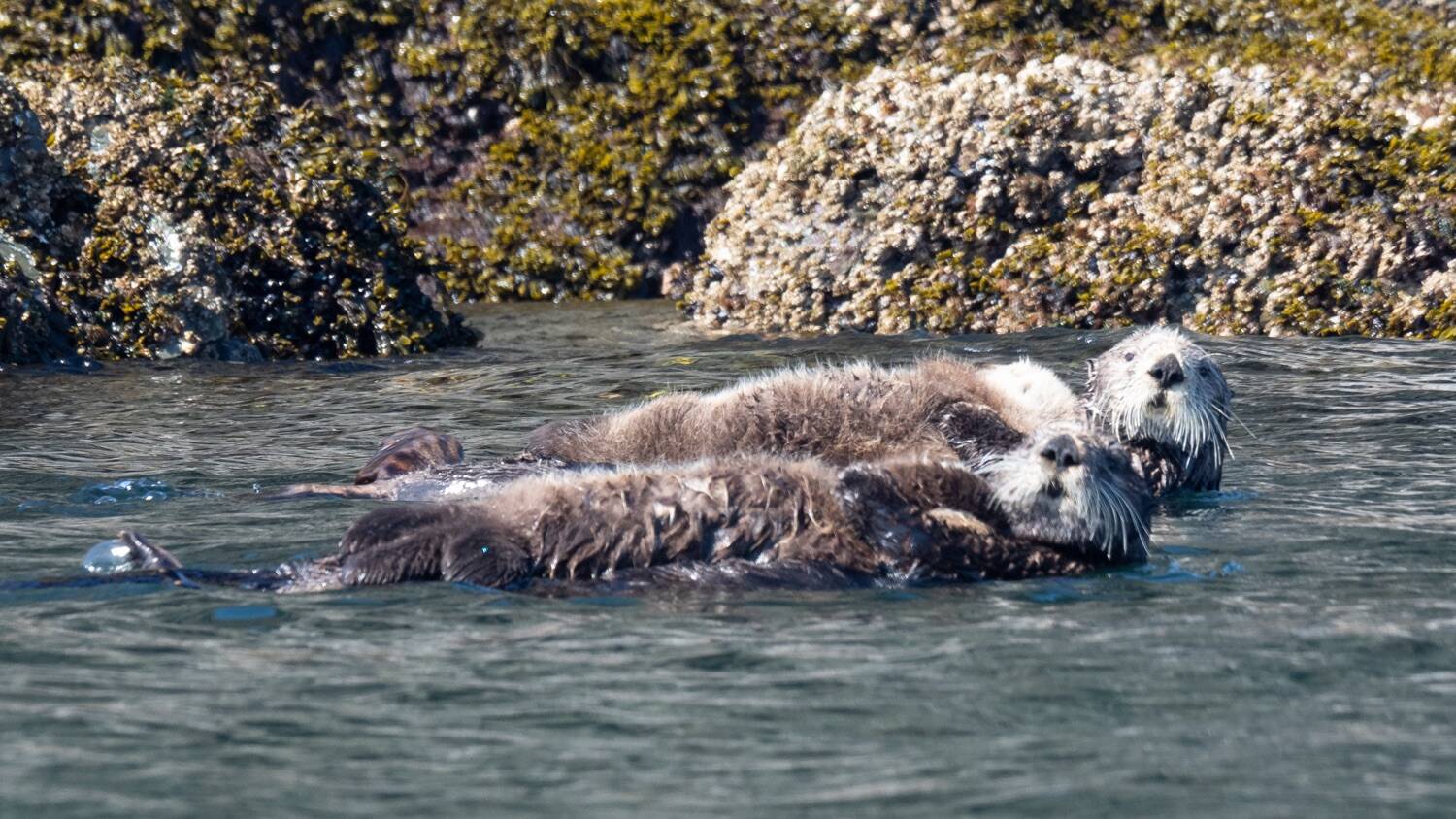A coalition of environmental organizations, including local advocacy groups Cook Inletkeeper and Kachemak Bay Conservation Society, are suing to stop a federal oil and gas lease sale in the northern district of Cook Inlet.
Oil and Gas Lease Sale 258, which will open about 960,000 acres of seafloor between Kalgin and Augustine islands in Cook Inlet to oil and gas development, is slated for Dec. 30.
The multiparty lawsuit, filed by Cook Inlet Keeper and Earthjustice, Natural Resources Defense Council, Kachemak Bay Conservation Society, Alaska Community Action on Toxics and the Center for Biological Diversity, contends the Bureau of Ocean Energy Management and the Department of Interior are violating the National Environmental Policy Act and the Administrative Procedure Act “by failing to meaningfully account for climate impacts of find alternatives to result in the least harm to the climate, marine live and Cook Inlet communities.”
In the fall of 2020, the Trump Administration put out a draft environmental impact statement for the sale and then opened it up a for comment, Sue Mauger, executive director of Homer’s Cook Inlet Keeper, said.
Public input on the draft environmental impact statement for the project was overwhelmingly against it, Mauger said. ” … we had over 93,000 people comment. Ninety-nine percent of them were in opposition to the sale. It was an amazing response.”
In May of 2022, BOEM canceled the sale, citing no industry interest. But, because of the Inflation Reduction Act, passed in August, the sale is now mandatory before the end of the year.
Mauger noted that, despite the environmental promises of the Biden administration BOEM did not reduce much of the size of the lease sale. Tract availability was downsized slightly and now covers approximately 958,202 acres of the sea floor, stretching roughly from Kalgin Island in the north to Augustine Island in the south.
“They carved out a very small amount that would be critical beluga and sea otter habitat but there is nothing in the IRA that says they need to lease a huge tract of land but they are in fact putting forward a very robust lease sale,” Mauger said.
Maps of the lease sale area including the blocks excluded as critical habitat area can be found with more information online at www.boem.gov.
The plaintiffs decided to file the lawsuit before Dec. 30 to let potential bidders know that there is a standing court case in action. There has not been much previous industry interest in Sale 258 and with the quickly approaching deadline there may not be before the end of the year, according to Mauger. If bids are made, applicants will know they are bidding under a cloud of legal uncertainty.
Marissa Wilson, executive director of the Alaska Marine Conservation Council, which supports the lawsuit, said oil and gas exploration presents environmental hazards beyond the threat of an oil spill.
“I think one of things that’s really underrepresented is impacts of exploration and seismic sounding even at the very basic trophic level that can have cascading effects. An oil spill is concern but all aspects of exploration have consequences that are both immediate and long term.”
Wilson noted the complexity of the habitat within Cook Inlet. For example, important shellfish beds that provide food sources for a variety of other animals. Sounding will also disturb whales, she said.
“There are studies that show it will disturb fish and crab ability to observe predators; impacts are complex and we know what some of them are but there is a lot we don’t,” Wilson said.
Lease Sale 258 will occur at 10 a.m. on Friday, Dec. 30.
Emilie Springer can be reached at esspringer@alaska.edu.


